Who are we?
EDUConferences offers events and conferences for A Level students in order to help inspire students and encourage them to consider studying Psychology at a higher level. We offer thought-provoking talks to take back to the classroom.
Why attend our events
EduConferences offers the opportunity to hear world leading academics present and talk in their area of research, along with the opportunity to ask questions during the event.
Each event will have a group of speakers to cover research in their specialised fields and show students the importance of Psychology as an area of study.
EduConferences aims to inspire students to help them consider studying Psychology at a higher level, offering thought-provoking talks to take back to the classroom.
To book or reserve your place at one of our conferences, complete the form to the right of this page or on the event page for the event you’d like to attend.
Meet Our Speakers
Learn more about some of the speakers who will be attending our conferences this year. Click on the image of a speaker to learn more about them and when and where you can see them speaking.
Prof Adrian Owen
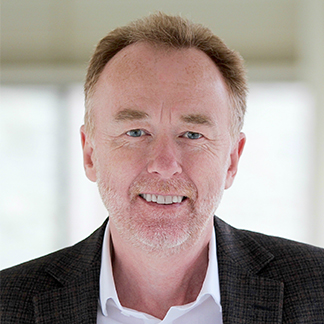
Prof Adrian Owen:
Prof Adrian M. Owen OBE, PhD is currently a Professor of Cognitive Neuroscience and Imaging at the University of Western Ontario, Canada. His research combines structural and functional neuroimaging with neuropsychological studies of brain-injured patients and has been published in many of the world’s leading scientific journals, including Science, Nature, The New England Journal of Medicine and Lancet.
Prof Owen’s research findings have attracted widespread media attention on TV, radio, in print and online and have been the subject of many TV and radio documentaries. He has published over 360 peer-reviewed articles and chapters and a best-selling popular science book ‘Into the Gray Zone: A Neuroscientist Explores the Border Between Life and Death.
Prof Owen was recently awarded Officer of the Most Excellent Order of the British Empire (OBE) in the Queen’s Honors List, 2019, for services to scientific research.
The search for consciousness
The thought of being ‘locked in’ following a brain injury or aware during general anaesthesia troubles us all because it awakens the old terror of being buried alive. But what does it mean to be awake, but entirely unable to respond and what can this tell us about consciousness itself?
In recent years, rapid technological developments in the field of neuroimaging have provided a number of new methods for revealing thoughts, actions and intentions based solely on the pattern of activity in the brain.
In this talk, I will lead you through some of the most recent discoveries in this field and discuss their implications for patients with severe brain injuries, for sleep and anaesthesia, and for our understanding of consciousness itself.
To watch Prof Adrian Owen in person or online, click here for more details about this event.
Andrew Newton
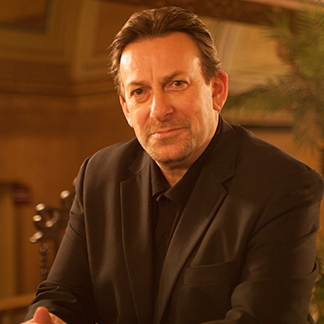
Andrew Newton: Hypnosis – is it real?
Andrew Newton is one of the world’s most respected and experienced hypnotists. He is Member of the Royal Society of Medicine and Senior Lecturer in Hypnosis at HypnoseAkademiet, Europe’s premier Hypnotherapy Training School.
Andrew regularly appears at conferences and seminars in the UK, Australia, New Zealand, South Africa, Norway, Sweden and India. He has used hypnosis to help more than 20,000 people recover from stress, anxiety, PTSD, grief and loss, phobias, and failed or abusive relationships.
Andrew is a keen musician and has performed with the Hallé, Royal Liverpool Philharmonic and BBC Scottish Symphony Orchestras. In 1992 he flew his own plane from Manchester to Nairobi, Kenya, and spent the next three months flying around and exploring East Africa.
Hypnosis – is it real?
For many people hypnosis is viewed as anything but scientific. However the job of science is to provide evidence-based explanations for observable phenomena.
The lecture will include a demonstration of hypnosis, during which you can observe what happens and ask questions afterwards to try to understand what is actually happening.
To watch Andrew Newton in person or online, click here for more details about this event
Cara Flanagan
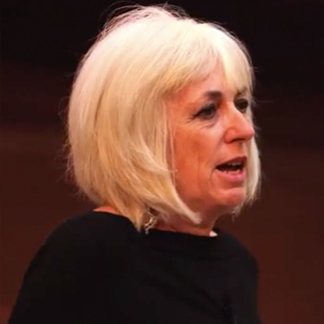
Cara Flanagan: Science – what’s the point?
This conference is all about science so it makes sense to start the day with a look at what science is and why it is so important. Science means ‘knowledge’ – it is the process that enables us to establish truths about the world and it is a process invented by humans.
Science is at the core of psychology – the scientific study of behaviour. It is also at the core of your A level exams. Cara will explain why you could actually gain a pass mark in A level Psychology on just research methods marks. So it makes sense to learn to love it – that is, if you don’t already enjoy doing and learning about science and research methods.
Cara Flanagan is known for her numerous Psychology textbooks. At last count well over 50 of them for the different exam boards and also specialist texts on research methods. She also taught for 20 years (maths, computing and psychology) and was a senior examiner for AQA Psychology A level.
In her spare time she is an enthusiastic walker, currently walking from John of Groats to Lands End in sections. For 30 years she lived in the Scottish Islands, overlooking a loch, and now lives in Somerset, overlooking the Glastonbury Festival site.
To see Cara in person or online, you can attend any of the following events: Science and Psychology, PSYCHApplied, or why not attend her AQA Revision Masterclass.
Dr Chantelle Douglas

Dr Chantell Douglas:
Dr Chantell Douglas is a highly specialist, senior clinical psychologist, yoga teacher and yoga therapist. Chantell has worked in mental health for 15 years. Chantell is interested in mindfulness, compassion and narrative understandings of human suffering, and the intersections with science, psychology and social justice. Chantell works as a Clinical Lead in the NHS, and in private practice. Chantell is passionate about compassion-focused, holistic and community approaches to wellbeing, and the ways we honour and connect to wisdom. Chantell works with organisations and community settings including consultation and training, and therapeutically with individuals and families.
Science and Psychology of Compassion and Human Suffering
Suffering is part of being human. Compassion is fundamental to human survival. Compassion is said to be an evolved and fundamental part of human nature, and wired into our brains, physiology and biology. Compassion can be experienced through suffering. Compassion in response to human suffering can impact on psychological, physical and community wellbeing. Compassion can shape our experiences and interactions with ourselves, others and the world.
This talk touches on recent developments around the science and psychology of compassion, as well ancient wisdom, practices and philosophy, with examples of ways we can cultivate compassion in our everyday lives.
Dr Lucie Clements
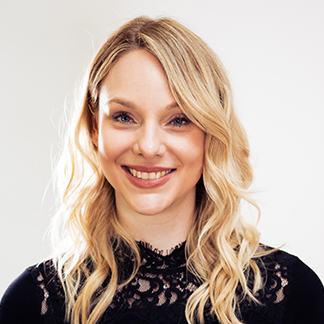
Dr Lucie Clements: Dancing – Science and performance
Dr Lucie Clements is a leading dance psychologist who has worked with training and professional dancers around the world, from the West End to Australia to Hong Kong – supporting them to apply psychological principles to develop their performance and wellbeing.
Lucie was previously a Senior Lecturer in Psychology at the University of Chichester and now lectures in Psychology at the Open University alongside her consultancy with performers. In her spare time, Lucie loves going to the theatre, spending time with cats and enjoying walks in the Sussex countryside and beaches.
Dancing – Science and performance
Do you think arts and sciences require different thinking and skills? Many students feel they have to choose between pursuing creative and scientific subjects, but did you know that the same psychological skills and thinking is used in both?
The lecture will include live experiments and dancing, where you can learn how psychologists use dance to understand the mind and behaviour.
Dr Lucy Johnstone
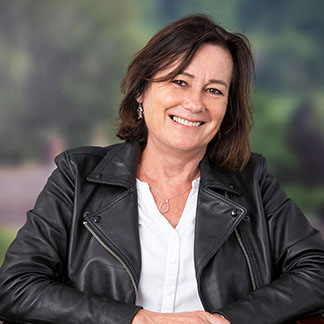
Dr Lucy Johnstone: Alternatives to psychiatric diagnosis: critiques and new practices
Dr Lucy Johnstone will briefly describe the limitations of diagnostic models of distress and outline some current alternatives, including psychological formulation.
Dr Lucy Johnstone is a consultant clinical psychologist, author of ‘Users and abusers of psychiatry’ (3rd edition Routledge 2021) and ‘A Straight-Talking guide to psychiatric diagnosis’ (PCCS Books, 2nd edition 2022); co-editor of ‘Formulation in psychology and psychotherapy: making sense of people’s problems’ (Routledge, 2nd edition 2013); and co-author of ‘A straight talking introduction to the Power Threat Meaning Framework’, 2020, PCCS Books) along with a number of other chapters and articles taking a critical perspective on mental health theory and practice. She is the former Programme Director of the Bristol Clinical Psychology Doctorate in the UK and has worked in Adult Mental Health settings for many years, most recently in a service in South Wales.
Lucy was lead author, along with Professor Mary Boyle, for the ‘Power Threat Meaning Framework’ (2018), a British Psychological Society publication co-produced with service users, which outlines a conceptual alternative to psychiatric diagnosis and has attracted national and international attention. Lucy is an experienced conference speaker and lecturer, and currently works as an independent trainer. She lives in Bristol, UK.
Dr. Mark Griffiths
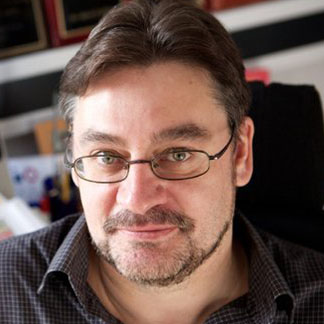
Dr. Mark Griffiths: Slots of fun: The psychology of behavioural addiction
Dr. Mark Griffiths is Distinguished Professor of Behavioural Addiction at the Nottingham Trent University. He has spent over 35 in the field and has published over 1350 peer-reviewed research papers, six books, over 180 book chapters, and over 1500 other articles. He has won 24 national and international awards for his work.
For many people the concept of addiction involves taking of drugs. However, there is a growing ovement that views a number of behaviours as potentially addictive including gambling, sex, exercise, videogame playing and internet use. In this talk Dr Griffiths will argue that all addictions consist of a number of distinct common components. Addictions are a part of a biopsychosocial process and evidence is growing that excessive behaviours of all types do seem to have many commonalities.
Matt Langdon

Matt Langdon: The Heroic Imagination Project
Matt Langdon is the President of the Heroic Imagination Project and founder of the Hero Round Round Table. He wrote The Hero Handbook, a guide for young heroes-in-training, published through the American Psychology Association. He lives in a tiny town in Australia and loves every opportunity to travel.
Matt will provide an introduction to the Heroic Imagination Project, its history, its philosophy, and its programmes.
To watch Matt Langdon’s talk, click here for more details about this online event.
Mike Cardwell
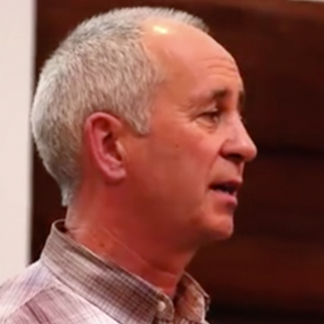
Mike Cardwell: Bad Science
Author, retired Senior Lecturer Bath Spa University, former Chief Examiner AQA.
Bad science
We assume that all scientists are honest folk and that we can trust what we read in the scientific journals. However, recent studies have suggested that a worryingly high number of researchers are not quite as trustworthy as we would like to believe. Psychologists, like all scientists, can, on occasion, go ‘rogue’ in their quest for academic fame and fortune.
This talk takes a close look at just how easy it is for researchers in psychology to twist the truth or even deceive us completely when it comes to publishing research and building reputations. We will also look at how the subject has responded to these concerns about academic integrity and is in the process of rebuilding our trust in psychology and psychologists.
To watch Mike Cardwell in person or online, click here for more details about this event
Oliver Meech
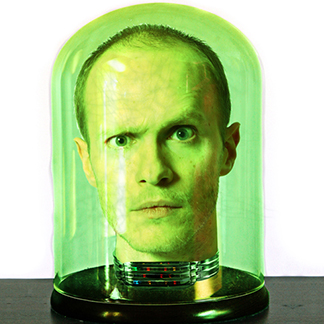
Oliver Meech: Magic – it’s all about psychology
Oliver Meech is a magician, speaker and writer. After studying Experimental Psychology at the University of Oxford, he created the show ‘When Magic & Science Collide’, which enjoyed two sell-out runs at the Edinburgh Fringe. As a performer, Oliver has appeared at The Science Museum, The National Space Centre, and at science festivals from Aberdeen to Brighton. As a speaker, he’s given talks at The Magic Circle and TEDx. And as a writer, he has appeared in Psychology Review and written bestselling books for magicians.
When not creating illusions, he creates communications for some of the world’s best-known brands. Oliver loves combining magic with other disciplines to develop unique experiences such as, ‘My jaw hit the floor’ BBC Radio, and ‘Could rival Derren Brown’ Theatre Wales.
Magic – it’s all about psychology
The real secret to magic tricks is that they’re not about fooling the eyes, but bamboozling the brain. Every trick is a real-world psychology experiment. Discover how magicians can offer surprising insights into the way we think and act, by exploring questions including:
- What is misdirection and why is it often misunderstood?
- What captures our attention and how does that affect what we see (and don’t see)?
- How reliable are our memories, and can they be improved?
- Should we believe our perception of reality?
With enthusiasm, humour and interactive elements, Oliver Meech takes you on an eye-opening tour of our amazing brains.
To watch Oliver Meech in person or online, click here for more details about this event
Dr Phil Banyard
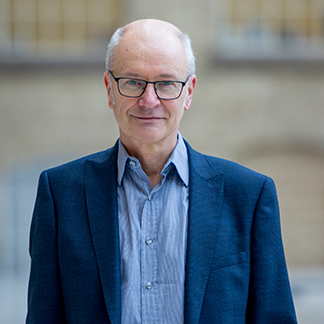
Dr Phil Banyard: Everything you know about psychology is wrong
Dr Phil Banyard is Professor Emeritus of Psychology at Nottingham Trent University. He has written and contributed to over 20 books, most recently Controversy and Psychology (published by Routledge) and Essential Research Methods in Psychology (published by SAGE). He was Chief Examiner for GCSE and A Level syllabuses in psychology for twenty years and has marked more exam scripts than he has brain cells left. He has recently retired from his university position and is using his time productively by improving his skills on MarioKart in the hope that he will be able to beat the younger members of the extended family.
Everything you know about psychology is wrong
Psychology has some great stories that tell us a lot about human behaviour and experience. The problem is that there is sometimes more story and less evidence than you might expect. Milgram’s work on obedience and Rosenhan’s diagnosis are two good examples of this. The stories are timeless and speak to us today but neither conform to our understanding of what science should be. Does this matter and does it mean that we should dismiss these stories? The work of Rosenhan challenges the role of diagnosis and asks us to look at mental distress in a different way. It was controversial when it was published and it remains controversial today. Phil Banyard will explore these questions, and more in this talk.
To watch Dr Phil Banyard in person or online, click here for more details about this event
Dr Phil Zimbardo

Dr Phil Zimbardo: My Journey from Creating Evil to Inspiring Heroism
Dr Philip Zimbardo is a Professor Emeritus at Stanford University. He has been described as ‘a legendary teacher, someone with gift of enthralling his audience and packing a powerful message.’
Phil Zimbardo will engage us with his views on the nature of evil and his personal encounters with evil. Zimbardo will then revisit the Milgram obedience studies, and also explore his Stanford Prison Experiment.
Zimbardo will then discuss the pioneering work he conducted on Shyness and its treatment. Following this, we will hear about the psychology of Time Perspective.
Finally, he will extend Matt Langdon’s hero presentation with an introduction of women as heroes.
To watch Dr Phil Zimbardo’s online event, click here for more event details.
Prof Richard Wiseman
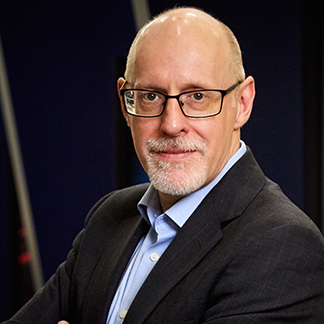
Prof Richard Wiseman: That’s Impossible!
Professor of the Public Understanding of Psychology, University of Hertfordshire.
Prof Richard Wiseman has published over 100 academic articles, written several best selling books (including The Luck Factor and 59 Seconds), created YouTube videos that have attracted over 500 million views, and is one of the most followed psychologists on Twitter. Based at the University of Hertfordshire, he has been described as one of the most innovative psychologists in the world. Richard’s next book explores why psychology really matters.
That’s Impossible!
Join Prof Wiseman as he explores the seemingly impossible. Experience some of the world’s greatest optical illusions, discover the psychology that magicians use to make objects vanish into thin air, uncover the truth about paranormal phenomena and find out how you can achieve more than you might imagine. A fun and informative journey into a world where nothing is quite as it seems.
To watch Prof Richard Wiseman in person or online, click here for more details about this event.
Dr Tochukwu Onwuegbusi
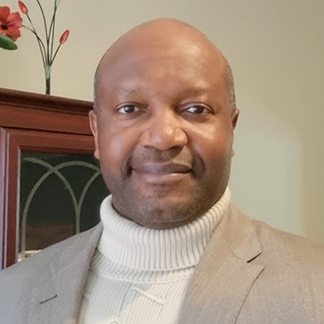
Dr Tochukwu Onwuegbusi: Crime – how can we solve it?
One of the leading goals of criminal investigation is suspect identification. To do this, police have to rely on evidential factors which is challenging, especially when no physical evidence is available. Given the complexities that characterise crime scene investigation, detectives have had to use technologies to facilitate investigation. Recently, eyetracking has gained prominence in the field of forensic science.
In this talk, I am going to describe the application of a novel eyetracking method. This is used to aid police crime investigation, particularly in suspect identification. Our data suggests that fixation patterns may be repeated during the recognition of familiar scenes. Thus, tracking eye fixations could give insight as to whether the suspect under police interrogation is lying about having memory of the crime scene.
Dr Tochukwu Onwuegbusi is currently a Lecturer in Forensic Psychology at the University of Lincoln. His main research focuses on application of experimental research designs and eyetracking technology. This is used to assess a variety of real-world forensic and clinical phenomena.
Travelling to an EduConferences event
Science and Psychology
To find out more information about getting to our event at Friends House, London please click here.
For information about getting to our event at St Michaels, Bristol please click here.
PSYCHApplied
To find out information about getting to our event at Emmanuel Centre, London please click here.
